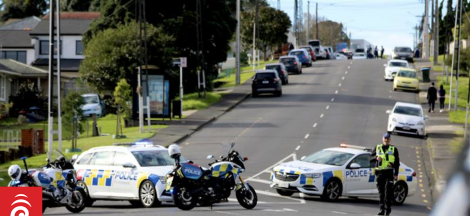Anyone who uses city roads will know e-bikes have become
increasingly popular in Aotearoa New Zealand. But we also
know rising e-bike sales have been predominantly
driven by financially well-off households.
The
question now is, can e-biking be accepted and embraced by
people and communities where it is currently not happening?
Three pilot programmes from around the country have now
given us cause for optimism.
Understanding more about
the barriers to e-bike access – especially in communities
with low cycling levels or where income levels mean bikes
are prohibitively expensive – has been one of the main
gaps in our knowledge.
But over the past few years, we
have been involved in projects designed to examine how
e-bikes might work in such places. The three pilots were
based in Mangere (South Auckland), Wainuiomata (Lower Hutt)
and Sydenham (Christchurch).
These are all areas or
communities with lower relative incomes and lower levels of
cycling. The majority of individuals involved did not
routinely cycle, and some hadn’t been on a bike for
decades.
In all three pilots, the results were
positive. In some cases, participants reported long-term,
life-changing benefits.
What the pilot schemes
showed
Each pilot was different. The Mangere
programme loaned e-bikes to people for two to three
months between 2022 and 2023 through a community bikehub.
The Wainuiomata
programme involved a longer loan period of one year over
2023, and was run through a health provider at a local marae.
Advertisement – scroll to continue reading
The
Christchurch
programme, which ran between 2021 and 2024, was a free
e-bike share scheme for tenants in a specific social housing
complex, organised through a partnership with a shared
e-bike provider.
Where needed, participants in all
pilots were supported as they gained riding confidence and
knowledge of safe cycling routes.
Participants in all
the pilot programmes found e-biking acceptable, and they
used and enjoyed the bikes. While these pilots were not set
up to measure distance travelled, we know from other
research that participants in e-bike access schemes ride on
average 5km per day, half of which replaces car
trips.
Individuals reported practical benefits such as
being able to travel to their jobs, mental and physical
health improvements, and not having to pay for petrol each
week.
In the Wainuiomata pilot there were wider ripple
effects, with participants reporting whānau
members also started cycling as a result of the loan scheme.
In one case, ten members of the wider whānau got
involved.
3 policy actions needed now
These
results mirror what we know already about how e-bikes can improve physical
and mental health, reduce transport greenhouse gas
emissions, and make cities nicer places by reducing
car use.
Compared to conventional bikes, e-bikes
also allow people to bike
further and in hillier
places. They are also great for groups with
traditionally lower levels of cycling, such as people with
health
conditions, disabilities,
older people and women.
It
also seems concerns about increased rates of injury may be
less
significant than initially thought. Overall, the broad
benefits of e-bikes have seen hundreds of access
schemes developed globally, including many
in New Zealand.
Combining international evidence
and experience with the information from the three local
pilot programmes, we see three main policy areas that will
increase e-bike uptake and use in New
Zealand.
1. Physical infrastructure:
this is needed to support cycling in all our cities and
larger towns, and would involve a combination of cycle lanes
and low-traffic
neighbourhoods, alongside expanded bike parking and
storage.
The Climate Change Commission has recommended
these networks be constructed, and experience
from Wellington shows rapid construction is
possible.
2. Targeted access schemes:
these help people who can’t afford e-bikes. Without
targeting, such schemes tend to be mainly
used by the well-off. It’s likely we will need a range
of options, such as short-term and long-term low-cost (or
free) loans, rent-to-buy schemes or subsidies.
People
should be able to access these schemes through a variety of
organisations so as to target different motivations: saving
money, improving health, commuting for work, ferrying
children, environmental concern.
3. Local
organisation networks: these support individuals
and communities to access bikes, maintain them, provide
rider training, run bike libraries, route finding and
community events to support and encourage people to
ride.
This wider support was a key factor to the
success of the all pilots. Local organisations, champions
and leaders are essential to help overcome some of the
practical and cultural barriers that exist because we have
such low levels of cycling.
Change is
achievable
What we have outlined constitutes a
different way of doing business for the transport sector.
But there are already organisations doing a lot of this
work, including bike hubs and cycling community
organisations.
Others have infrastructure in place
that could expand to encompass e-bike programmes, such as marae
and community health centres. What is needed is a commitment
to support these activities as part of core transport
business policy.
We don’t need to wait for more
research. The three things required – building
infrastructure, increasing access and providing support
programmes – are all understood and
achievable.
E-bikes can and should play an important
role in expanding New Zealand’s transport options and
improving the wellbeing of its people.
Caroline
Shaw, Associate Professor in Public Health,
University
of Otago; Karen
Witten, Professor of Public Health, Te
Kunenga ki Pūrehuroa – Massey University, and
Simon
Kingham, Professor of Human Geography, University
of Canterbury
This article is republished
from The
Conversation under a Creative Commons license.
Read the original
article.
Disclosure
statement
Caroline Shaw receives funding from the
Health Research Council of New Zealand, University of Otago
and Waka Kotahi/New Zealand Transport
Agency.
Karen Witten receives funding from the
Health Research Council of NZ, Ministry of Business
Innovation & Employment, Waka Kotahi/NZTA and Auckland
Council.
Simon Kingham receives funding from
Ministry of Business Innovation &
Employment.




 Parent calls for guidelines after Seymour’s historic Snapchat messages to teen daughter | Newshub
Parent calls for guidelines after Seymour’s historic Snapchat messages to teen daughter | Newshub